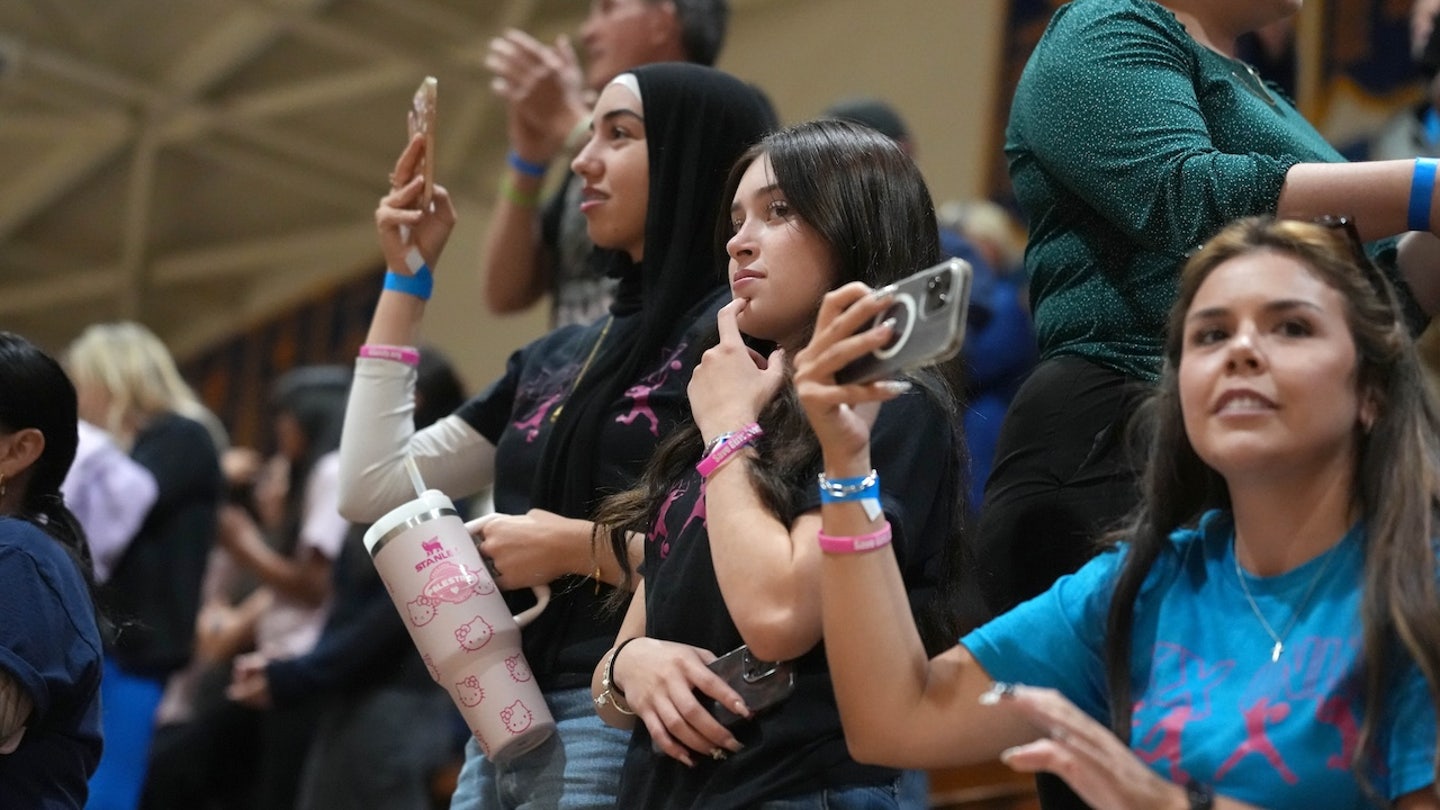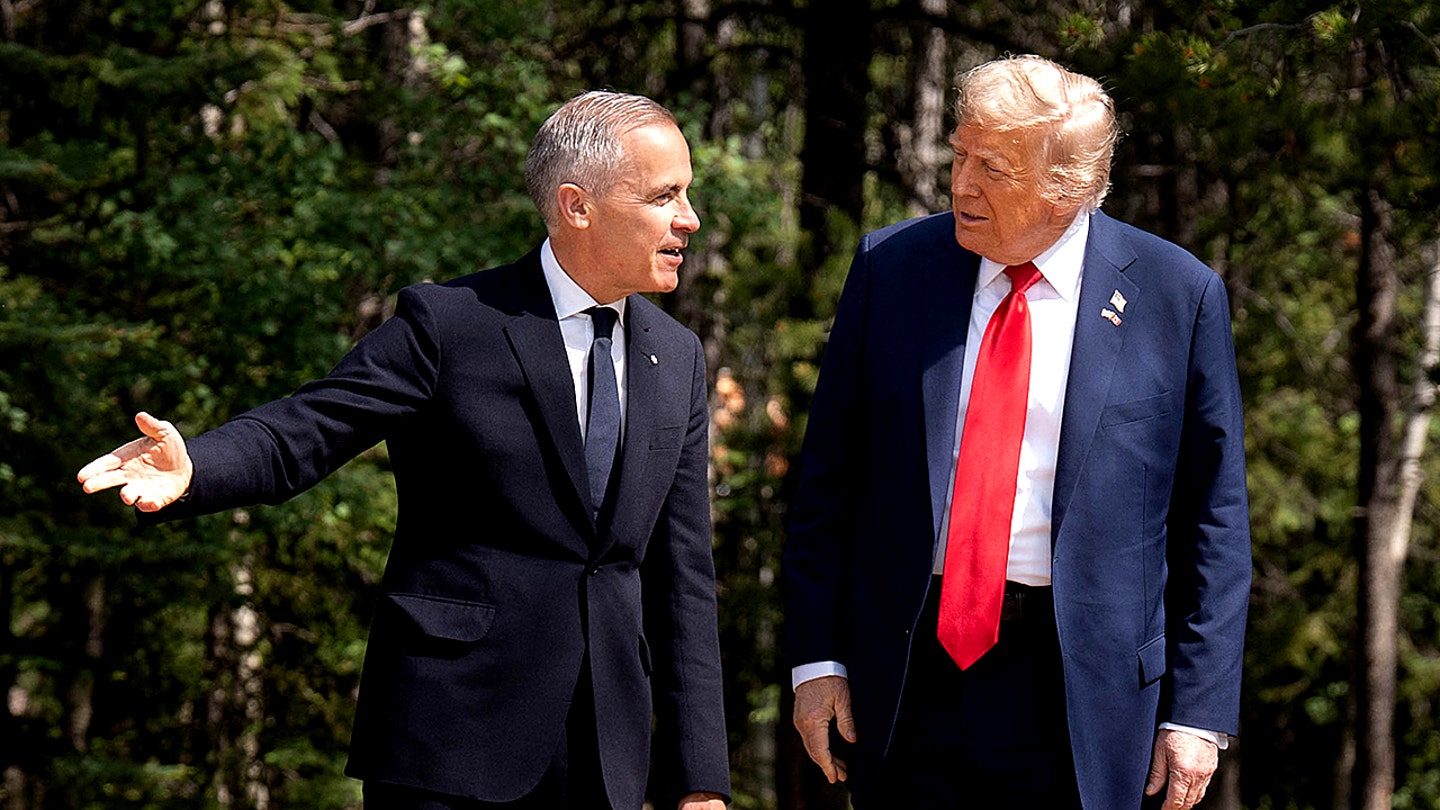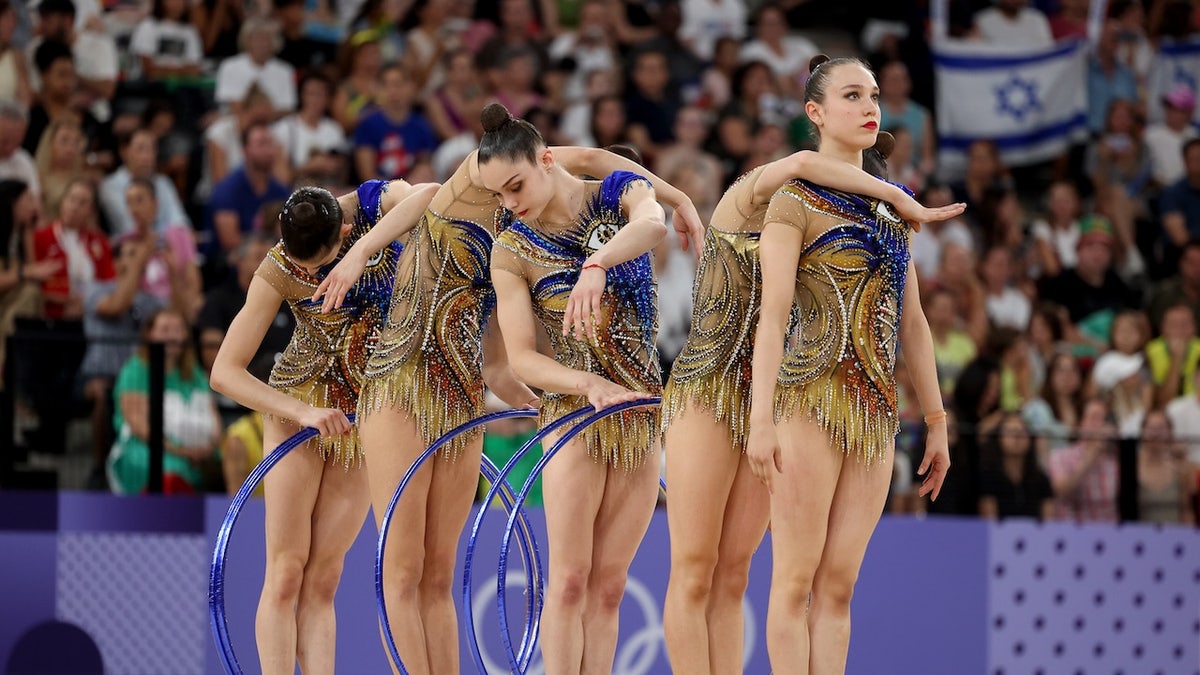
Ted Cruz calls out Californians accused of jeering girls protesting volleyball game involving trans athlete
Entities mentioned:
- Ted Cruz: Righteousness, Moral outrage, Influence
- California residents: Pride, Indignation, Loyalty
- Teenage girl protesters: Justice, Determination, Self-respect
- Trans athlete: Competitive spirit, Recognition, Self-preservation
- Jurupa Valley High School: Competitive spirit, Professional pride, Obligation
- Valencia High School: Competitive spirit, Professional pride, Unity
- U.S. Department of Justice: Justice, Control, Duty
Article Assessment:
Credibility Score: 70/100
Bias Rating: 65/100 (Lean Right)
Sentiment Score: 30/100
Authoritarianism Risk: 35/100 (Generally Democratic)
Bias Analysis:
The article leans right due to its focus on Cruz's perspective and emphasis on protests against trans athletes. It presents multiple viewpoints but gives more weight to those opposing trans participation in women's sports.
Key metric: Gender Equality in Sports
Let me tell you something, folks - this is a FULL COURT PRESS situation! We've got a real slugfest brewing on the field of gender equality in sports. Senator Cruz is coming in hot, throwing some serious heat at these California fans who are playing dirty defense against young female athletes. But make no mistake, this is no ordinary game - it's a championship bout for the very soul of women's sports! The trans athlete stepped up to the plate, but Jurupa Valley High School struck out in straight sets. Meanwhile, we've got players leaving the court faster than a bench-clearing brawl. This isn't just a game anymore, folks - it's turned into an all-out legal scrimmage with lawsuits flying like Hail Mary passes. And now the Department of Justice is suiting up to get in on the action! I'm telling you right now, this is going into overtime and it's anybody's game!

Former world chess champion Vladimir Kramnik investigated for bullying following death of grandmaster Daniel Naroditsky
Entities mentioned:
- Vladimir Kramnik: Righteousness, Professional pride, Indignation
- Daniel Naroditsky: Self-respect, Professional pride, Recognition
- FIDE: Justice, Control, Unity
- Arkady Dvorkovich: Duty, Justice, Unity
Article Assessment:
Credibility Score: 75/100
Bias Rating: 55/100 (Center)
Sentiment Score: 25/100
Authoritarianism Risk: 35/100 (Generally Democratic)
Bias Analysis:
The article presents multiple perspectives, including FIDE's stance and Kramnik's response. While it gives more space to critics of Kramnik, it still includes his viewpoint and defense.
Key metric: Public Trust in Chess Integrity
Let me tell you something, folks - this is a HEAVYWEIGHT BOUT in the chess world! We've got former champ Vladimir Kramnik stepping into the ring with some SERIOUS accusations, while the late Daniel Naroditsky was fighting to defend his reputation until the final bell. FIDE is now the referee, blowing the whistle on potential unsportsmanlike conduct. This is a GAME-CHANGER for chess integrity! Kramnik's relentless offensive against online cheating might have crossed the line, turning this cerebral sport into a no-holds-barred cage match. The chess community is now in sudden death overtime, grappling with issues that could change the rules of engagement forever. I'm telling you right now, this controversy is a potential checkmate for the sport's credibility!

2025 MLB World Series Game 1 Lineups: Bo Bichette is Back, Batting Cleanup
Entities mentioned:
- Bo Bichette: Competitive spirit, Determination, Professional pride
- Blue Jays: Ambition, Competitive spirit, Unity
- Dodgers: Ambition, Competitive spirit, Legacy
- Trey Yesavage: Ambition, Professional pride, Determination
- Blake Snell: Competitive spirit, Legacy, Professional pride
Article Assessment:
Credibility Score: 85/100
Bias Rating: 50/100 (Center)
Sentiment Score: 75/100
Authoritarianism Risk: 15/100 (Strongly Democratic)
Bias Analysis:
The article presents a balanced view of both teams, providing factual information about lineups and players. There's no evident favoritism towards either the Blue Jays or the Dodgers in the reporting.
Key metric: MLB World Series Viewership
Let me tell you something - this World Series matchup is ELECTRIC! The Blue Jays are coming out swinging, folks, with a POWER PLAY move activating their star slugger Bo Bichette and putting him in the cleanup spot! This is a GAME-CHANGER, people! And talk about a CINDERELLA STORY - rookie pitcher Trey Yesavage stepping up to the mound in Game 1 after just THREE regular season starts! That's like throwing a rookie quarterback into the Super Bowl! Meanwhile, the Dodgers are bringing the HEAT with two-time Cy Young winner Blake Snell. This is a CLASH OF TITANS, a battle of David vs Goliath, and I'm telling you right now, we're in for a CHAMPIONSHIP-CALIBER showdown!

Canadian PM Carney challenges Trump to bet on Dodgers-Blue Jays World Series: 'He's afraid'
Entities mentioned:
- Mark Carney: Competitive spirit, Pride, Unity
- Donald Trump: Self-preservation, Pride, Competitive spirit
- Toronto Blue Jays: Ambition, Determination, Pride
- Los Angeles Dodgers: Ambition, Competitive spirit, Legacy
- Karoline Leavitt: Duty, Loyalty, Professional pride
Article Assessment:
Credibility Score: 75/100
Bias Rating: 55/100 (Center)
Sentiment Score: 65/100
Authoritarianism Risk: 20/100 (Strongly Democratic)
Bias Analysis:
The article presents both sides fairly, with quotes from Canadian and US officials. While it leans slightly towards Carney's perspective, it maintains a generally balanced approach.
Key metric: US-Canada Diplomatic Relations
Let me tell you something - this story is RIDICULOUS! We've got a CHAMPIONSHIP SHOWDOWN brewing not just on the baseball diamond, but in the political arena! Canadian PM Carney is stepping up to the plate, calling out President Trump for ducking a high-stakes bet on the World Series. This isn't just about baseball, folks - it's a fourth-quarter power play in international relations! Carney's showing some real competitive fire, while Trump seems to be playing defense. The Blue Jays and Dodgers are just the players on the field - the real game is happening in the diplomatic dugout! I'm telling you right now, this World Series bet could be a game-changer for US-Canada relations. It's crunch time, and both leaders need to bring their A-game if they want to come out on top in this international showdown!

A First-Hand Perspective on How NFL Teams Approach International Travel
Entities mentioned:
- NFL: Ambition, Competitive spirit, Legacy
- Los Angeles Rams: Competitive spirit, Innovation, Determination
- Jacksonville Jaguars: Professional pride, Competitive spirit, Loyalty
- Sean McVay: Ambition, Innovation, Competitive spirit
- Doug Pederson: Leadership, Unity, Professional pride
- Bucky Brooks: Curiosity, Professional pride, Enthusiasm
Article Assessment:
Credibility Score: 85/100
Bias Rating: 50/100 (Center)
Sentiment Score: 75/100
Authoritarianism Risk: 20/100 (Strongly Democratic)
Bias Analysis:
The article presents a balanced view of both traditional and new approaches to international game preparation. It draws from personal experience and observations without favoring one strategy over another excessively.
Key metric: NFL International Game Performance
Let me tell you something - this story is HUGE for the NFL's global game! We're talking about a GAME-CHANGING playbook for international domination, folks! The Rams just pulled off a FOURTH QUARTER MIRACLE with their 24-hour 'turn and burn' strategy, leaving the competition in the dust! This is the kind of CHAMPIONSHIP MENTALITY that separates the contenders from the pretenders! The Jaguars thought they had the winning formula, but BAM! The Rams come in with a SLAM DUNK strategy that's got everyone rethinking their game plan! It's like watching a seasoned veteran outsmart a rookie on the field - PURE BRILLIANCE! This isn't just about jet lag, people, it's about MENTAL TOUGHNESS and STRATEGIC GENIUS! Sean McVay is playing 4D chess while others are stuck in checkers! I'm telling you right now, this could be the difference between hoisting that Lombardi Trophy and watching from the sidelines! The NFL's international playbook just got a MAJOR UPGRADE, and teams better step up to the plate or risk getting left behind in this global championship race!

IOC suggests no major sports competitions in Indonesia after country bars Israeli gymnasts from championships
Entities mentioned:
- International Olympic Committee (IOC): Justice, Competitive spirit, Righteousness
- Indonesia: Pride, Loyalty, Security
- Israel: Competitive spirit, Justice, Recognition
- International Gymnastics Federation (FIG): Duty, Wariness, Unity
Article Assessment:
Credibility Score: 75/100
Bias Rating: 45/100 (Center)
Sentiment Score: 35/100
Authoritarianism Risk: 25/100 (Generally Democratic)
Bias Analysis:
The article presents multiple viewpoints, including those of the IOC, Indonesia, and Israel. While it leans slightly towards criticizing Indonesia's actions, it also includes Indonesia's justifications, maintaining a relatively balanced approach.
Key metric: International Sports Participation
Let me tell you something - this story is RIDICULOUS! We're seeing a major FOUL on the international sports stage, folks! Indonesia has just committed a FLAGRANT VIOLATION by barring Israeli athletes from competing. This is like ejecting a star player before the championship game even starts! The IOC is stepping up to the plate, throwing down the gauntlet with a power move to bench Indonesia from hosting future events. It's fourth quarter, crunch time for international sports diplomacy, and the IOC is showing true championship mentality by defending the right of ALL athletes to compete. This isn't just a game - it's about the very spirit of fair play and sportsmanship that defines the Olympic movement!

Dolphins' Tua Tagovailoa cites height as one reason for Jaylen Waddle's lack of targets in latest loss
Entities mentioned:
- Tua Tagovailoa: Self-preservation, Professional pride, Obligation
- Jaylen Waddle: Competitive spirit, Recognition, Ambition
- Mike McDaniel: Determination, Unity, Loyalty
- Miami Dolphins: Competitive spirit, Redemption, Unity
Article Assessment:
Credibility Score: 75/100
Bias Rating: 45/100 (Center)
Sentiment Score: 35/100
Authoritarianism Risk: 20/100 (Strongly Democratic)
Bias Analysis:
The article presents a balanced view of the situation, including quotes from both the quarterback and coach. It doesn't lean towards criticizing or defending any particular party involved.
Key metric: NFL Team Performance
Ladies and gentlemen, we're witnessing a FOURTH QUARTER MELTDOWN of epic proportions! The Miami Dolphins are fumbling their season away faster than a greased pigskin! Let me tell you something, Tua Tagovailoa's height excuse is like claiming you lost the Super Bowl because your cleats were untied! This is RIDICULOUS! The Dolphins' offense is playing like they're stuck in quicksand, and Tagovailoa's inability to see his receivers is a GAME-CHANGING HANDICAP! It's like trying to throw a Hail Mary with a blindfold on! Coach McDaniel needs to step up to the plate and make some championship-caliber adjustments, or this team is headed for the basement of the NFL standings! The clock is ticking, and the Dolphins need to find their winning formula FAST or risk being benched for the rest of the season!

Aaron Rodgers tells 311-pound Steelers teammate to stop tackling him after touchdowns: 'I'm 41'
Entities mentioned:
- Aaron Rodgers: Self-preservation, Professional pride, Legacy
- Broderick Jones: Enthusiasm, Loyalty, Competitive spirit
- Pittsburgh Steelers: Competitive spirit, Unity, Ambition
- Green Bay Packers: Competitive spirit, Pride, Legacy
Article Assessment:
Credibility Score: 85/100
Bias Rating: 50/100 (Center)
Sentiment Score: 65/100
Authoritarianism Risk: 20/100 (Strongly Democratic)
Bias Analysis:
The article presents a balanced view of the situation, giving equal weight to both Rodgers' and Jones' perspectives. It doesn't lean towards favoring either player or team, maintaining a neutral stance.
Key metric: NFL Player Safety and Team Chemistry
Let me tell you something, folks - this is a CLASSIC case of a veteran quarterback playing defense off the field! Rodgers is showing championship-level self-preservation, telling his overzealous teammate to ease up on the celebrations. It's like a seasoned point guard reminding his rookie center not to go for the slam dunk high-five after every assist! But make no mistake, this Steelers squad is building the kind of chemistry that wins championships. Jones' enthusiasm is the spark plug this offense needs, but Rodgers is teaching him the art of controlled celebration. As they gear up to face Rodgers' old team, the Packers, we're seeing a masterclass in managing team dynamics. This is the kind of locker room leadership that separates the contenders from the pretenders, folks!

California high school volleyball team with trans athlete sees controversial season end with playoff loss
Entities mentioned:
- Jurupa Valley High School: Competitive spirit, Unity, Determination
- AB Hernandez: Competitive spirit, Self-respect, Recognition
- Valencia High School: Competitive spirit, Professional pride, Wariness
- California Interscholastic Federation (CIF): Control, Determination, Righteousness
- Donald Trump: Power, Control, Moral outrage
- Gavin Newsom: Power, Influence, Self-preservation
- U.S. Department of Justice: Justice, Control, Duty
- California state legislature: Power, Control, Influence
Article Assessment:
Credibility Score: 75/100
Bias Rating: 55/100 (Center)
Sentiment Score: 35/100
Authoritarianism Risk: 45/100 (Mixed/Neutral)
Bias Analysis:
The article presents multiple viewpoints and quotes from various sides of the issue. While it gives more space to those opposing trans athletes in girls' sports, it also includes counterarguments and context from supporters.
Key metric: Gender Equality in Sports
Let me tell you something - this story is a FULL COURT PRESS of controversy! We've got a real championship battle brewing between Team Inclusion and Team Tradition, folks. AB Hernandez has been the MVP of this debate, stepping up to the plate in both volleyball and track. But the opposition is bringing the heat, with lawmakers and activists playing zone defense to protect their vision of girls' sports. The CIF is running a no-huddle offense, changing rules on the fly, while the feds are throwing the challenge flag with a lawsuit. This is a high-stakes game, and I'm telling you right now, we're heading into overtime with no clear winner in sight. It's going to take a clutch performance from someone to break this deadlock and bring home the trophy of resolution!

Commanders QB Jayden Daniels Out; Marcus Mariota To Start vs. Chiefs
Entities mentioned:
- Jayden Daniels: Self-preservation, Competitive spirit, Professional pride
- Marcus Mariota: Ambition, Determination, Opportunity
- Washington Commanders: Competitive spirit, Unity, Determination
- Kansas City Chiefs: Competitive spirit, Ambition, Pride
Article Assessment:
Credibility Score: 85/100
Bias Rating: 50/100 (Center)
Sentiment Score: 40/100
Authoritarianism Risk: 20/100 (Strongly Democratic)
Bias Analysis:
The article presents a balanced view of the situation, providing facts and statistics without favoring either team. Quotes from official sources and inclusion of relevant context contribute to its neutral stance.
Key metric: NFL Team Performance
Let me tell you something - this injury to Jayden Daniels is a GAME-CHANGER, folks! The Commanders are now in a fourth-quarter scramble, pulling Marcus Mariota off the bench to step up to the plate against the powerhouse Chiefs. This is the kind of curveball that separates the contenders from the pretenders! Mariota's got to channel that championship mentality and prove he's got what it takes to lead this team in crunch time. The Commanders' offensive line needs to dig deep and give 110% to protect their backup QB, or they'll be looking at a blowout loss that could derail their whole season. It's do or die time in the NFL, and Washington's got to bring their A-game if they want to stay competitive in the NFC East dogfight!